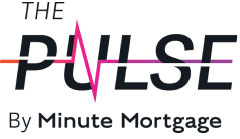6 Things To Consider Before Refinancing Your Home Loan
Planning to refinance your mortgage starts long before you fill out an application. Like when you got your original mortgage, it’s best to start planning and getting your finances in order before applying. And we recommend considering certain pros and cons of refinancing.
Here are six things to consider as you plan for a positive refinance experience.
1. Refinancing Means You’re Getting a New Mortgage
Refinancing doesn’t mean redoing your existing mortgage. It’s not about changing some of the terms on your current mortgage and keeping it. When you refinance, you get a brand new mortgage that pays off your current mortgage, thus taking the place of it.
So be prepared for a similar process as you went through when getting your original mortgage. Your credit score and debt-to-income ratio are still very important, and you’ll complete many of the same forms and pay a number of the same costs again.
2. Know Your Home’s Equity
Knowing your current equity position in your home is important. One reason people choose to refinance is to get rid of mortgage insurance. You can refinance into a loan without mortgage insurance once you have 20% equity in your home.
3. Know Your Credit Score
Just like when you got your original mortgage, the higher the better when it comes to refinancing. The best rates and terms are available to those with a credit score of 740 or higher. Check out our tips for raising your credit score if yours needs work.
4. Know Your Debt-to-Income Ratio
Like with credit score, debt-to-income ratio is just as important this time around. You should look to spend no more than 40%-45% of your monthly gross income on housing costs. Keep in mind that includes more than just your mortgage: utilities, repairs, upkeep, HOA fees, taxes and more are all considered in that amount.
5. Consider the Costs of Refinancing
Refinancing usually costs anywhere between 2% and 6% of the total loan amount. Keep these costs in mind as you consider whether refinancing is right for you. Even if the length and terms of the new loan could save you money in the long term, the closing costs could make it not worth your while if you plan to sell before reaching your break-even point. That’s the point at which your savings from a lower mortgage rate exceed the costs of refinancing.
6. It May Not Be the Right Time For You to Refinance
While refinancing can bring big savings to some homeowners, it simply isn’t the best idea for everyone all the time. Using your cash out unwisely or moving before hitting your break-even point are a couple of situations where refinancing may not be the best move for you at this time.
Have questions about refinancing?
The team at Minute Mortgage is here to help. Contact our experienced loan experts today and get on the path to a better mortgage.


 4 Minute read
4 Minute read



